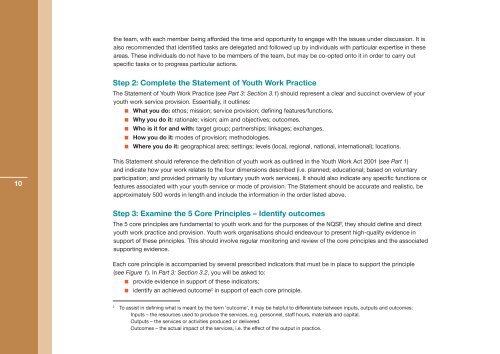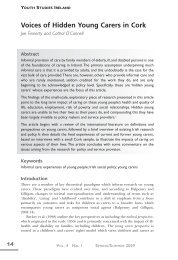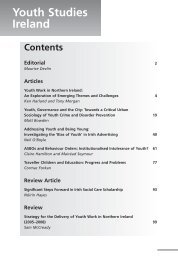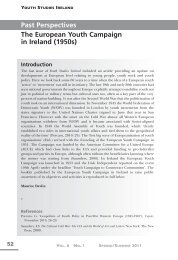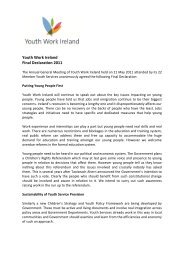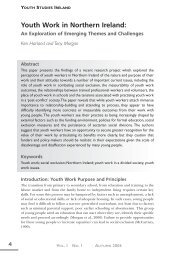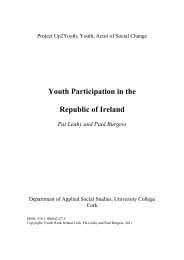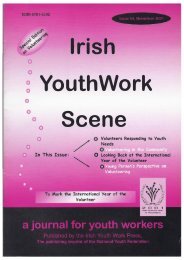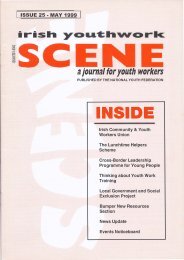National Quality Standards Framework (NQSF) - Department of ...
National Quality Standards Framework (NQSF) - Department of ...
National Quality Standards Framework (NQSF) - Department of ...
Create successful ePaper yourself
Turn your PDF publications into a flip-book with our unique Google optimized e-Paper software.
the team, with each member being afforded the time and opportunity to engage with the issues under discussion. It isalso recommended that identified tasks are delegated and followed up by individuals with particular expertise in theseareas. These individuals do not have to be members <strong>of</strong> the team, but may be co-opted onto it in order to carry outspecific tasks or to progress particular actions.Step 2: Complete the Statement <strong>of</strong> Youth Work PracticeThe Statement <strong>of</strong> Youth Work Practice (see Part 3: Section 3.1) should represent a clear and succinct overview <strong>of</strong> youryouth work service provision. Essentially, it outlines:■ ■ What you do: ethos; mission; service provision; defining features/functions.■ ■ Why you do it: rationale; vision; aim and objectives; outcomes.■ ■ Who is it for and with: target group; partnerships; linkages; exchanges.■ ■ How you do it: modes <strong>of</strong> provision; methodologies.■ ■ Where you do it: geographical area; settings; levels (local, regional, national, international); locations.10This Statement should reference the definition <strong>of</strong> youth work as outlined in the Youth Work Act 2001 (see Part 1)and indicate how your work relates to the four dimensions described (i.e. planned; educational; based on voluntaryparticipation; and provided primarily by voluntary youth work services). It should also indicate any specific functions orfeatures associated with your youth service or mode <strong>of</strong> provision. The Statement should be accurate and realistic, beapproximately 500 words in length and include the information in the order listed above.Step 3: Examine the 5 Core Principles – Identify outcomesThe 5 core principles are fundamental to youth work and for the purposes <strong>of</strong> the <strong>NQSF</strong>, they should define and directyouth work practice and provision. Youth work organisations should endeavour to present high-quality evidence insupport <strong>of</strong> these principles. This should involve regular monitoring and review <strong>of</strong> the core principles and the associatedsupporting evidence.Each core principle is accompanied by several prescribed indicators that must be in place to support the principle(see Figure 1). In Part 3: Section 3.2, you will be asked to:■■ provide evidence in support <strong>of</strong> these indicators;2■■identify an achieved outcome in support <strong>of</strong> each core principle.2To assist in defining what is meant by the term ‘outcome’, it may be helpful to differentiate between inputs, outputs and outcomes:Inputs – the resources used to produce the services, e.g. personnel, staff hours, materials and capital.Outputs – the services or activities produced or delivered.Outcomes – the actual impact <strong>of</strong> the services, i.e. the effect <strong>of</strong> the output in practice.


